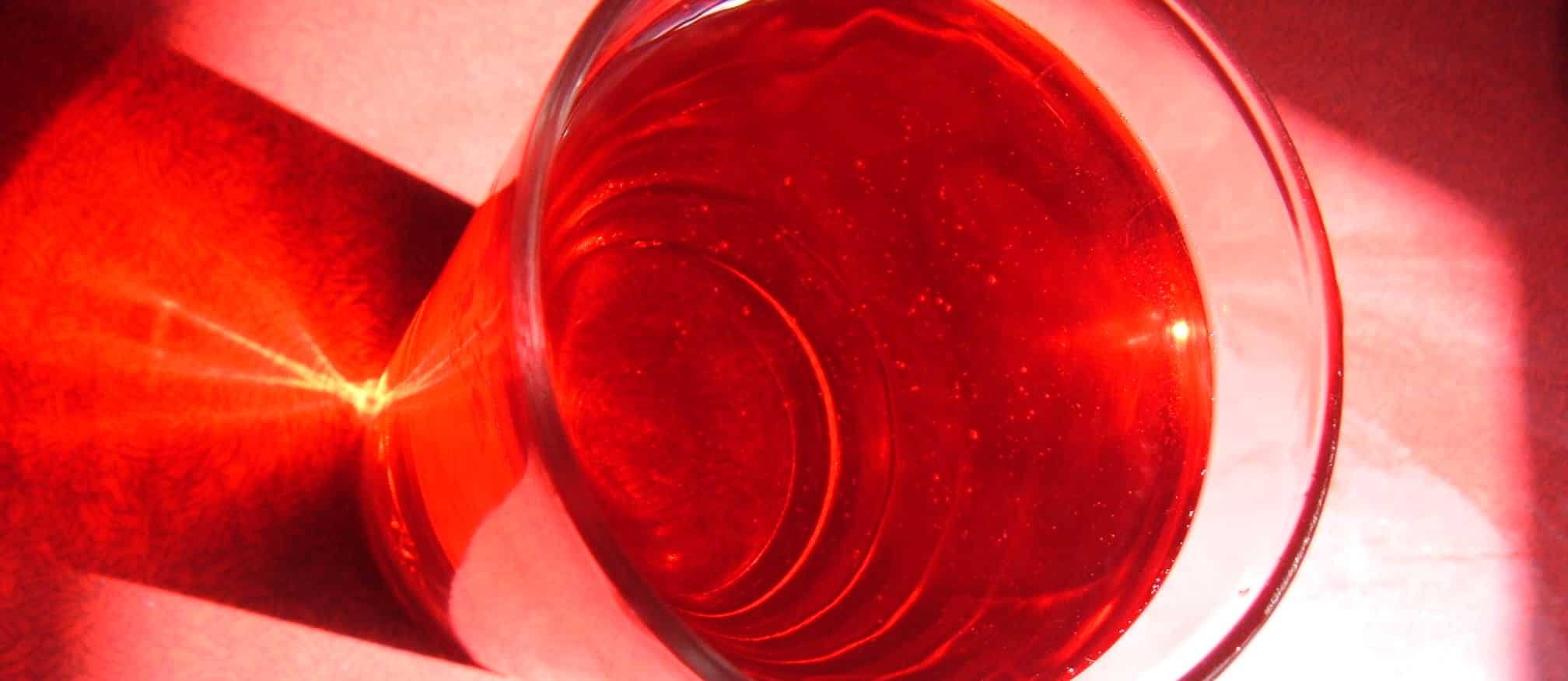How could any bacteria cause a bladder infection without just getting flushed away—literally? Bladder infections may make sense if we’re not drinking enough or if we leave behind a stagnant pool because we can’t empty completely (as in men with enlarged prostates). However, in most people there should be a constant flow of water. The way bladder infection-causing E. coli hold on is that they evolved finger-like projections (fimbrae) they can use to stick to the walls of the bladder so they don’t get washed away.
Almost 30 years ago, it was demonstrated that if you drip cranberry juice on E. coli, their fimbrae aren’t able to stick as well. Grape juice doesn’t work, nor does orange or apple juice. Even white cranberry juice made from unripened berries doesn’t work, suggesting that it’s one of the red phytonutrients that’s the active ingredient. For more on these natural plant compounds, see Phytochemicals: The Nutrition Facts Missing From the Label and for those doubting the power of plants, Power Plants.
Even if it works in a petri dish, though, we don’t pee cranberry juice. How do we know that the anti-adherence phytonutrients are even absorbed through the gut and make it into the bladder? Subsequent studies have shown that if you drip the urine of someone who drank cranberry juice onto E. coli, they don’t stick as well either. Now we’re getting somewhere. If you check out my 4-min video Can Cranberry Juice Treat Bladder Infections?, you can see the stickiness of strains of E. coli wading in urine from someone drinking water, and the stickiness in the urine of someone drinking cranberry juice. Within hours of consumption there’s a drop in E. coli adherence that appears to last throughout much of the day. So might cranberries really help prevent bladder infections?
The best way to prevent infections is to not get infected in the first place, which may involve the avoidance of chicken so you’re not constantly re-infecting yourself (see my last video Avoiding Chicken to Avoid Bladder Infections).
If that doesn’t work, however—if your gut remains stubbornly colonized with these bad bladder bugs—various tested cranberry products appear to reduce the recurrence of bladder infections by about 35 percent. Not as effective as antibiotics, but cranberry juice doesn’t foster antibiotic resistance and has fewer side effects.
There’s no good evidence to suggest cranberries are an effective treatment, though, which makes sense. Cranberries prevent the initial adherence, but that occurs at the start of the infection. When the infection is present and already stuck, there’s no clinical data to suggest that cranberries are effective in the treatment of urinary tract infections, meaning it doesn’t work better than placebo—but placebos work! For example, ibuprofen seems to work just as well as antibiotics for the treatment of uncomplicated urinary tract infections.
Some people really do need antibiotics—pregnant women, children, men, those with kidney infections, and systemic symptoms like nausea and vomiting. For most healthy women, though, bladder infections just go away on their own without antibiotics. Women who drink cranberry juice and have their symptoms disappear may falsely attribute their recovery to the juice. However, when it comes to most UTIs, nothing works–as in nothing, a sugar pill, actually works!
I discuss the controversy around doctors giving placebos in The Lie That Heals: Should Doctors Give Placebos?
What else can cranberries do? Check out my recent videos Which Fruit Fights Cancer Better? and Cranberries Versus Cancer.
If cranberries are so good at keeping bacteria from sticking to the wall of the bladder, what about keeping bacteria from sticking to other places like our teeth? I touch on that in my video Childhood Tea Drinking May Increase Fluorosis Risk.
-Michael Greger, M.D.
PS: If you haven’t yet, you can subscribe to my videos for free by clicking here and watch my full 2012 – 2015 presentations Uprooting the Leading Causes of Death, More than an Apple a Day, From Table to Able, and Food as Medicine.
